Jottings and Other Thoughts and Inspirations on Writing
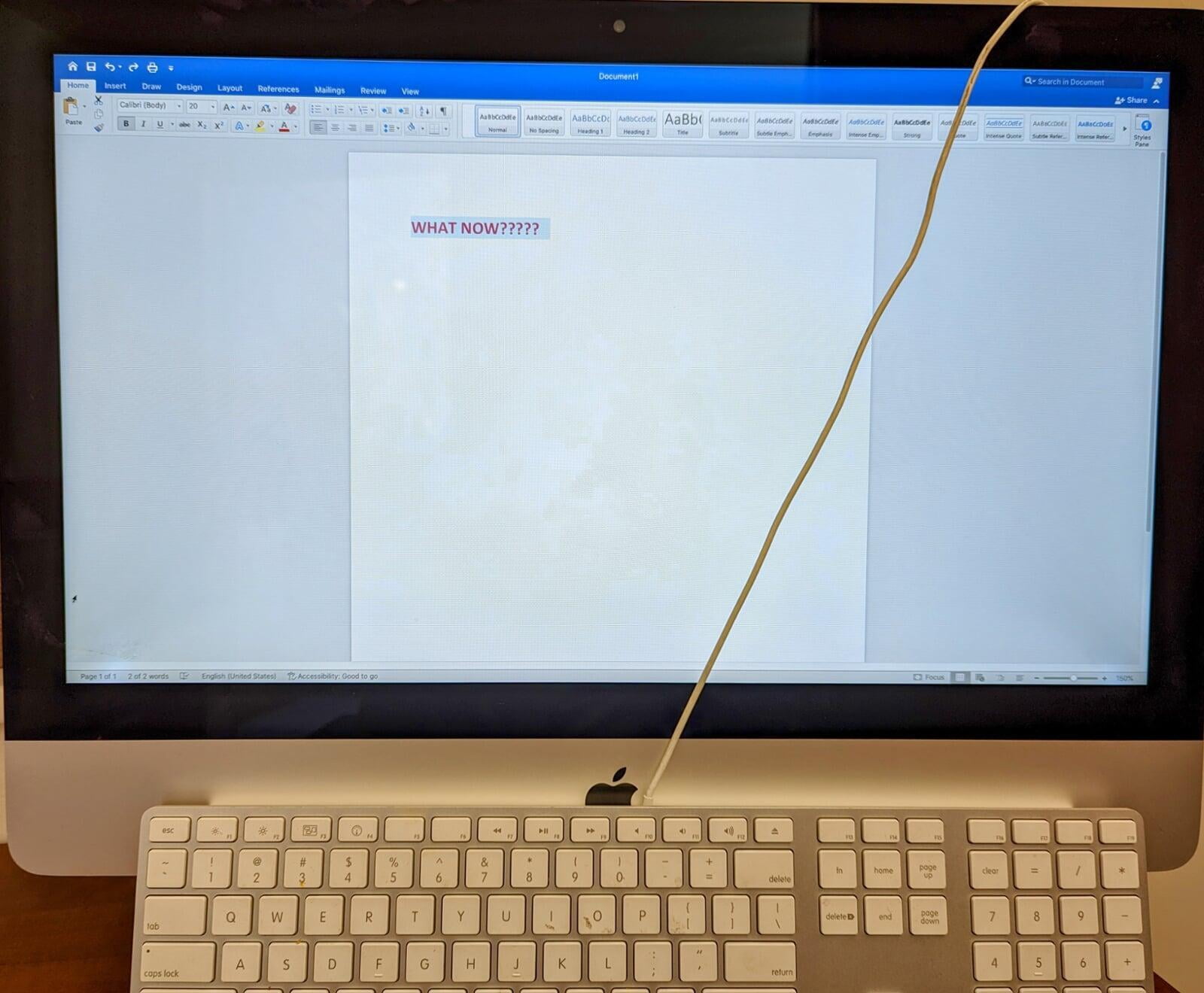
This is not to say that writing one’s best or even well on a given day is always possible. Even superstars can have off days. Still, writing, unlike scribbling, is putting down words with purpose. To fulfill the purpose requires the mindset recognizing this is a job. To do even a part-time job well requires commitment and clocking in for the hours even on (particularly on) days when you want to be doing something else. So, there’s no block to be overcome, just the writer accepting that they're not that into their job that day. They can be grateful that their boss will readily accept that they don’t have to show up if they choose for whatever good, bad, or meh reason not to. Or they can go to work
I often tell students that nobody writes a novel. Nobody starts typing and when they finish they have a book, or at least content that will interest many others. One can write a sentence and maybe a paragraph or three on a good day. You do that consistently – 1000 words a day for 80 days – and you have the 80,000 or so words that make up a 320-published-page work. Unfortunately, having written words doesn’t mean you have written a novel. The harder part of the process and success of the writing comes with the editing phase of the process, the adding, deleting and refining of what was first spewn. You can stop anywhere along the line. You can claim to be “blocked” from continuing. You are not doing the job as well as you can.
(That we can probably never do the job as well as we can is the ultimate frustration of writing … and subject for a different rant.)
But back to what keeps people from writing. The blank page is a hard place to start. I try to avoid it by trying to figure out what question(s) about the subject or story the audience wants to know next. Then I make notes to help me answer those. I also like to give myself a head start on the writing with notes or a full outline to consult bout what interests me about the story and how I might like to frame that. “Writing time” as the only period to add to the process puts too much pressure on me. Again, rather than subject myself to pondering the possibilities of the non-creative white space as time hurries by, for everything I am writing I will create an electronic document accessible from my phone or any computer where I can jot down an idea or phrase, or a piece or dialogue, or an observation or note about research to do whenever or wherever it pops into my head. Cut and paste some of that onto a blank page and at least I have somewhere to start the typing session. Also, as I finish a session I will often throw down in all caps on the page a suggestion for what the next section can be about. It’s the process that works for me. Writers figure out the process that works for them. You never hear of surgeon’s block or bus driver’s block or barista block. Every writer has to figure out their process for successfully putting words on paper, because writing is a job not an excuse.
We are taught to write as if producing a monologue, a lecture of what we know to be inscribed on the blank slate of a reader’s mind. No surprise: writing that engages is not the product of such instruction. Who wishes to be addressed as if they know nothing?
The successful writer -- combining training, practice, and probably more than a jot of natural instinct -- creates a dialogue. While only one person contributes the words, still a conversation takes place. There is for the audience a sense of “shared discovery” as questions they have about the story or subject, perhaps questions they didn’t even know they had until provoked by the writer, are answered.


As do all good stories about a faux gangsta imbibing Hennessey while deconstructing the English literary canon whilst emerging as a popular online sage and source for high school students, university professors, and the numerous in between, the story of Wisecrack—the company behind Thug Notes’ Sparky Sweets, PhD—begins with a cute meet of two Jewish undergrads, Jacob Salamon and Jared Bauer, during a University of Texas/Austin astronomy course. And then, quickly, it moves on. More at Easy Street Magazine ...
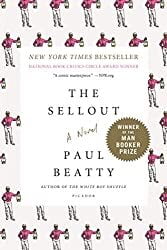
Paul Beatty's The Sellout Inspires a Search to Define "Comic Masterpiece" (June 22, 2017)
Prominent in the cover art of the paperback for Paul Beatty’s The Sellout lies the blurb that misled me. “A Comic Masterpiece,” pronounced NPR. Who wouldn’t want to read such a book as an antidote to these times. Unfortunately, the disconnect between a desire to read an actual comic literary masterpiece and reading one is less than amusing. Blame rests with words, as it often does when talking literature. More at Easy Street Magazine ...
Bad Writing Awards? (July 6, 2016)
Book honors aplenty litter the calendar. A person or group decides a collection of words are best in a designated class and thus an honor is issued. All well and good, but do the prizes promote superior writing or just encourage sales? Has a Pulitzer, Christy, Hugo, Nobel or any other literary award spurred an author to create a better novel than he or she would have otherwise? Has a publisher ever said let’s do less (copy) editing since this work definitely will (or won’t) be honored? Has an agent ever contracted a writer simply to score a few banquet tickets?
Improbable, right?
In this age of More Fine (enough) Artist factories, academia creates gobs of “good” writing, but it is also true that More at Easy Street Magazine ..
Do You Miss Spelling (Nov. 11, 2015)
A no judgement zone is an unlikely no judgment zone.
Not in seven months of visits to Planet Fitness with the former phrasing stuffed into the graphics on rows of machines and splattered across walls did I make out the extra “e.” The letter that makes sense, but also makes the word incorrectly spelled, finally popped while I stared at the signage on the machine in front of me between reps. Suddenly it was everywhere and I was overcome with a shaming indictment of my proofreading. Since the company had communicated its message to me perfectly well for a long time, what did it matter if they had thrown an extra “e” into the mix? More at Easy Street Magazine...
Define, But Expect Redefinition (June 2, 2015)
Make up a word for your writing. When you do, make sure your readers will understand it exactly as you want them to ... and then (courtesy John Green and Mental Floss) good luck controlling how others refine and revise the word's meaning.

A Jot of Literary Theorizing (Feb. 13, 2015)
The four stages of literary appreciation theory, which is unnamed and still very much a work-in-progress, arrives with apologies to Aristotle and other great theorists, snippets of whose thoughts I skimmed, tried to comprehend while being schooled, and now re-regurgitate.
The goal is an aid for writers trying to consider who their audience might be as aid to story structure and creation. The working outline is of appreciation evolving through four levels, reflective of both our physical aging process as well as emotional and mental development.
First there is interest in the schnook to king (or queen) tale — a plot arc most appreciate when very young. "Schnook" and "King-Queen" are used as stand-ins for the lowly and highly placed.
The next stage of development takes places somewhere within or between the elementary school years and end of high school the primary desire is to read how the K-Q is actually a schnook (or by a plot element is exposed as the schnook s/he always was).
As the mind matures and life experience adds up there is an appreciation for twists and turns where the schnook turns into a K-Q and then back again (and sometimes back again, again).
Later in life, when a full maturity cloak is settled about the shoulders, there should be appreciation for the story that starts and ends in a different place, takes in the hills and dales, moves from where is started, but with a K-Q/schnook antagonist who neither starts nor ends at either extreme. The key attraction for the audience is the complexity of the journey that mirrors real life (while also creating a larger drama and so entertaining escape from the reality that is being "funhouse" mirrored).
While the theory should (hopefully) develop, a germination point appeared while staring at racks of labeled books and trying to figure out why some were "fiction" and others "literature" as well as a recent discussion that touched on genre writing. The current working hypothesis regarding labeling is that "fiction" fits within the strictures of one of the first three stages while "literature" lands within the confines of stage four. (There are, of course, also marketing aspects to the labeling, but those must be set aside for now.)
And now comes the big caveat: With all things communication, as much as we know (see Arthur C. Clarke below from nearly 40 years ago), we will never know everything. The glory comes from a current generation being entertained and instructed, and later generations appreciating how much was correct.
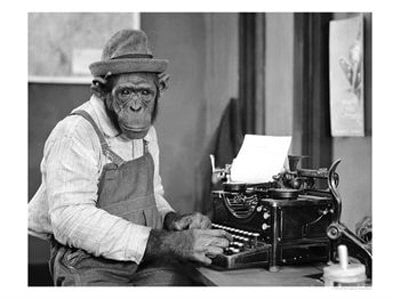
Two Plus Two Might Equal Chimpanzee (Nov. 5, 2014)
Efficient written communication may be considered as if it were a process similar to math or chemistry. So, trying to help a student frustrated with his/her writing, I'll often hear myself plead, "you just have to learn 'the formula'." A petard (perhaps canard to some) upon which I recently found myself hoist.
As in ... the mother of a student recently thanked me for his SAT writing score increasing from 610 to 710. I was pleased for him and for her, but was struck with the sadden (sic) realization that a number was being interpreted as a creativity measure. One hundred more points shouldn't define anyone as a "better" writer, when what it really measures is an improved mastering of a process.
In this case, the process is creation of a standard five-paragraph (two-page) essay, skeletalized as:
Address the question in the first sentence, preferably with an thought interesting to reader and not just a recitation of what is asked
List and create thematic links for three main arguments in the first paragraph to support what will be said on the topic
Begin each of the next three paragraphs by expanding on how one of the arguments is relevant, and then add two to three specific examples and evidential support
In final paragraph acknowledge others differ, before briefly highlighting how they focus on the question from a more limited scope, or use tainted evidence
Conclude a couple sentences later suggesting that the actual conclusion is at least slightly more far reaching than specifically detailed in the essay
Edit with an eye out for tics that put off readers. These include sentences under (somewhat arbitrarily) five words or more than 15 and paragraphs of fewer than four or more than six sentences. Reduce or eliminate qualifiers (such as "maybe," "possibly," "at least," and "seemingly"), and review for spelling, grammar and repetitious use of words that can be deleted or replaced with synonyms.
Checking off the points leads to SAT score improvement and a likely ace of Freshman English. My student had written better, but from the short time in which we worked together I knew he had cared little and perhaps not at all about his subject. Effective is not necessarily affective. For that kind of communication to happen, the creator has to have passion for the subject, which is never formulaic. SAT scoring be damned, real communication between writer and reader requires that the never-formulaic be aped.
King for a Reason (Sept. 11, 2014)
Stephen King glides to the rescue for all who are flummoxed when arguing the why's of teaching writing or English. In a frillless-and-fantastic Q&A with The Atlantic's Jessica Lahey he explains for every level the importance of good communications skills and joys to be found in reading, as well as how to teach them to even the most recalcitrant and obstreperous (as examples of words not to use) students.
Highlights include:
Always ask the student writer, "What do you want to say?" Every sentence that answers that question is part of the essay or story. Every sentence that does not needs to go.
I would say [to high school students], "The truth is always eloquent." To which they would respond, "Mr. King, what does eloquent mean?"
Not to throw another stick under the boil being made of the Common Core, but while Stephen King is too busy to design the common core for English and writing instructions, all the "chefs" should keep his recipes at hand.
As a note, the article grew from King's On Writing, which those of you "cooking" at home are well-advised to keep at hand next to your Strunk & White
.
Give Me an Audience, Or Give Me Death... And Let Me Type in Peace (Jan 29, 2014)
For the writer hoping to gain an audience and (or) money, the advice pendulum swings between two smart men.
According to James Boswell, according to Samuel Johnson, "No man but a blockhead ever wrote except for money." According to Mark Twain
, "Don't go around saying the world owes you a living. The world owes you nothing. It was here first."
Caught in the middle of the sages, you have to write for yourself, but always with the hope of reaching others. You cannot count on them to care like you about what you care about. But be fair, what they care about may not inspire the most memorable brain to fingertips connections. Which, again, is why not every person who is able to type or tweet or cast pods or communicate with words gets to make a living as a writer. In most cases, it would certainly be beneficial for everyone if people in the States cared more about the written word (particularly mine … and maybe yours), but it is important not to get too caught up in what cannot be or at least currently isn't. Often it is a hazard to actually working.
Also, if a certain story coming out of Russia is true — that a gent stabbed his friend for loving prose more than poetry — then maybe its best that writing doesn't always inspire life or death passions and one should let the comic-tragedy serve as a reminder to put one's head back down, one's fingers back on the keyboard, and one's attention back to putting out the best possible of one's own words because that is what you do, for whatever reason you do it.
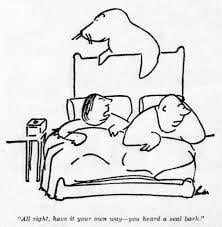
Nine Ways a Writer's Group is Like a Hassle of Corporate Consultants (Aug 10, 2013)
It's not that either being part of a writing group or engaging corporate consultants are bad ideas, per se. They're just not always a good idea either, depending on how their "collective wisdom" is put to use. Not to endorse the writing or communicative form, but just to note the current fad for the Buzzfeed-like listicles currently sweeping a click-driven, social media-frenzied writing society, here are nine equivalencies between working with a peer group of scribblers and a hassle of consultants (or murder of crows, smack of jellyfish, pack of mules, etc., if any of those work better for you).
Often companies hire consultants to tell them what they already know they need to do: similarly most writers "know" how to fix their work, they just don't want to, because it includes rereading their prose with a critical eye and killing particular words or phrases they have fallen in love with, but that don't fit, or they recognize they will have to do the hard work of rethinking and rewriting when they would really like to be done and receiving praise for their genius.
Pretty much all flattery without qualification should be eyed suspiciously (at best) and accepted with an eye on the motives of the flatterer.
Corporate consultants and writing group peers most often talk a much better game than they'll ever play. (A key to consider is that many consultants and writing group peers have limited, sometimes even no real success for the field/genre for which they are providing opinions.)
Companies and writers go wrong when they take on a completely new idea, too far outside their comfort or competency zone.
Neither the group nor haggle are useless, as in addition to “giving permission” to do the burdensome, they sometimes offer an insight into implementation. (As a writer, the key is to listen to the advice given by the voices in your head. If there are too many there's a problem, if there's only one, yours, the work will suffer. Work to discover the chorus.)
Advice profferers often begin to contradict themselves when pressed to move beyond the glib and apply the details of how their solution eases the problem. (Make sure to press!)
Advisors often impose their own baggage (prejudices and preferences they often won't admit to) in their study and solution to their advisee's work.
Peers and professionals can turn the experience of "advice-giving" into a jackals-tearing-at-the-flesh one if you (or the company management) doesn't stay firm to core mission, which, whether related to the essence of the business or most important themes, characters and conflicts of the work, is better understood before the process is begun.
Corporate consultant and writing group advice isn't always wrong or distracting from core mission and values, but it must always be intellectually ingested with a grain (or perhaps a full tablespoon) of salt — if such as an image can be swallowed — or else it will likely cost more (in money or emotional distress) than the benefits provided.
* Thanks, of course, to the great James Thurber for the perfect illustration of how pretty much everyone should listen to advice.
Content with Content [note different pronunciations] (June 3, 2013)
To connect with readers, channel your inner Sybil. Be schizophrenic with who you are and fit what you want to say to the particular form and function of the audience you aim at through a particular social media site.
Sybil, the pseudonymous and eponymous subject of the 1970s best seller and twice-made-for tv movie, (actually a troubled Shirley Ardell Mason offering herself up as a multiple personality disorder subject, gave her audience — in this case therapist Flora Rheta Schreiber who hoped to build a public reputation by chronicling her most unusual patient — exactly what was desired, exaggerating thoughts and parts of her personality in distinct forms to attract and maintain attention.
Taking writing back from the revolutionary to more traditional forms, if you understand a particular social media well enough to succeed in continuing to attract and please followers then you have distilled the essence of communication. If you're just getting lucky then good on you and if that is all you want then move along, nothing to see here folks. However, if you can suss out what makes a great 140 character tweet, a captivating image, and caption pin, the solid marriage of paragraph and YouTube video Facebook post, Google+ thingamabob, and, of course, whatever is newest, (then use that same process to figure out how you can "pen" the 300-plus page novel or 500-word specialized encyclopedia entry — even if you don't have enough to say for the former or couldn't imagine the torture that would have to befall you to even consider reading the latter. The key is a connection to the audience with content you understand, and a form that complements what you are communicating so that it also engages others.
The six-words for the cork board post-it note: All writing is social media writing. The writer's rule to keep in the back of your mind: no communication will succeed in more than three different formats, most won't work equally well in two and even pulling off one is hard … think, write, edit and work at it.
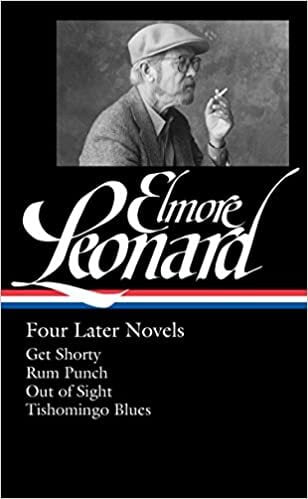
Leonard Compels Me to Kill the Clever (March 11, 2013)
Clever beats true for attention, but not for building a relationship with the reader — except, perhaps, probably, on a site like Twitter that encourages few words at the expense of complete thought.
For most people it is easy to write the amusing sentence or bon mot. Social networks are littered with them. Much harder — often only the inspired act of genius — is to build the context that morphs them into a story that compels.
So, currently, I’m enamored by the very micro
she worked her novel to death before it ever was born
and slightly more expansive
It’s a jungle gym out there: some will compete to climb to the top and stand alone; some will get stuck in the middle or fall through their own carelessness; some will stand nearby afraid to try; and some will not try, just stand, chat and judge; but the wise will see it as what it is for them.
Regrettably, I have to admit there is really nothing to them until there is more to them. It's often, or should be, a death sentence to fall in love with your own phrasing since the joy is often impoverishing tautology, the writer puffing up the writer.
All better said by Elmore Leonard (no, that absolutely doesn’t hurt my ego to write) in his Elmore Leonard's 10 Rules of Writing, which he claimed via a Guardian article letting various writers spell out their ten rules that his best writing is found through the maxim, "if it sounds like writing, I rewrite it."
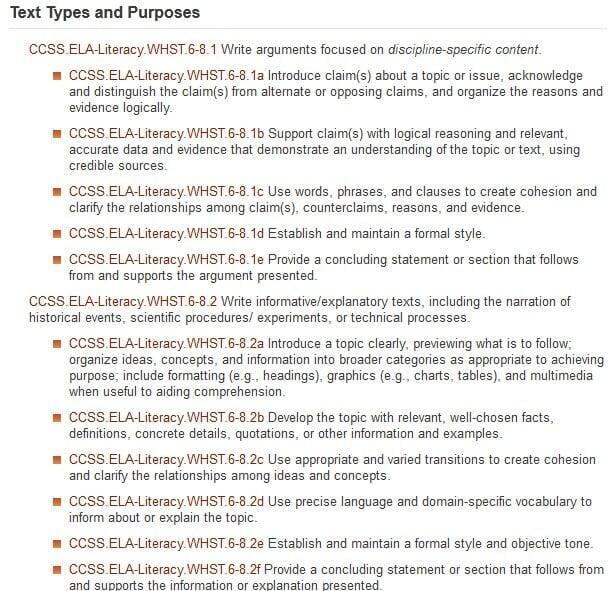
Core Curriculum Standards Still Needs Rethinking and Revisions (Feb 3, 2013)
While it may seem obvious to every sentient being what schools should teach (most often, just what they learned), it turns out that most every sentient being disagrees (often in general and surprisingly often regularly) in the specifics with his/her others. Into this buzz saw runs United States educational institutions and policy.
The country is attempting to implement Common Standards, a core curriculum acceptable and teachable in schools nationwide that will accomplish the often contradictory purposes of allowing teachers some sense of not being robotic didacticals and localities to impose their own "prejudices" on what those in heir community should (and shouldn’t) know, in addition to preparing all kids with a one-size fits all grounding in preparation for all possible futures, while [writer's prejudice-alert] still helping all the standardized test makers and ancillary businesses, including book publishers, “educational” web sites and tutorial enterprises keep raking in the big bucks … and not screwing up the educational bureaucracy and current stakeholders too much either.
In addition to policy disagreements, there is also accepted educational industry adage that everyone learns differently and the less-often discussed acceptance of letting students learn different and potentially conflicting lessons (e.g., compare the high school texts on the Civil War, or War Between the States, in different parts of the country or simply walk into the fourth grade class of one state and note that it is teaching state history, facts kids in other states will never hear).
Bringing us to discussion (let’s admit it, "argument") of what kids should be prepared for their communicating futures. Writing is a subset of skills falling under the Common Core Standards for English Language Arts (CCS for ELA). The specifics cover what are perceived as the basics on communicating via writing on subjects taught in English classes as well as how the skills can be integrated with various other academic subjects. Which, in part, is bureaucratically explained a tad bit like this
Lovely. Inclusive. Oh, yeah, wrong. Not unimportant, just not complete or even good enough. Our forms of communication are changing and will likely continue to change. The basics of "writing" that should be taught are:
What do you want to say?
Who do you want to say it to?
Why will they want to read it?
Which medium/context/format will be best?
The last question is increasingly important and ignored by the founding fathers and mothers of the common core. While it may be too much to say books and newspapers and magazines are dying, it is silly to pretend that a proficiency in text language or memo writing or video captions or any number of other contexts is not an important, maybe necessary, skill for students to develop. Simplified: few kids will ever write or read academic essays when out of school, however, they will write in plenty of other forms for business and pleasure. This they should be able to do at the highest level possible as they multiply their potential by educational opportunity.
So common core reviewers and revisers, fix it. Fast, please. With increasing ability, as they move through school it’s important that SWBAT (students will be able to) write
a sentence, paragraph two-page and five-page non-fiction report/essay
a short story — in first, a few words, then paragraph, two- and then five-page lengths
a poem in at least two or three styles
a tweet, blog, phone text, "casual" note, complaint letter, presentation document, etc.
and understand the importance of visual (which was always noted in teaching paragraphs and poetry, but needs additional emphasis as how we consume words becomes ever more webbed within the screen upon which we consume it as well as the embedding or surrounding of it with visual material).
Vaya con Dios. And good luck.
Caveat for Scribblers and Their Acolytes (Nov. 2, 2012)
Content has no fair price. Each piece of writing has a bid and ask price — borrowing argot from investors. Those prices, set by writer and reader (or editorial middleman) rarely agree ... and sadly, even more often can't find any common ground at all.
Today, as newspapers, magazines and book publishers struggle most writers are completely at sea. (Which, to be fair is something of their own fault for ignoring the economic history of writing as a profession or even avocation). Once upon times, prices for subscriptions and even single copy sales returned to the newspaper or magazine publisher just enough reader money to cover the cost for paper and production and the cost of mailing or distribution. Money for writers, such as it was, came from the sale of advertising space. Book prices were set based first on the manufacturing costs (again) and then taking into account overhead that would include the monies lost on all the books that would not sell well. In neither case, unfortunately, was there a model created that put a real value on the writer's work.
So, and horribly unfortunately in a day when the cost of mechanical production and distribution can be reduced to near-zero, there is almost no history of what makes for a fair price on a piece of writing. Writers can take whatever pennies they are offered or stick to what they think their writing is worth and hope that magically readers will come to them as publishers consult benchmarks, yardsticks or even Ouija boards.
Even given the vast amounts of writing scribblers let escape the editing phase much, much too early, there is no googlemappable path to “fair” in any sense of feeding the imaginator enough for his/her time while also providing the intermediary with enough incentive for their services and, finally, giving the readers the satisfaction of knowing that they have received good value for their money.
There'll likely be no fair price: Type at your own risk.
Scriptoris caveat, lector caveat: Writer beware, reader beware.
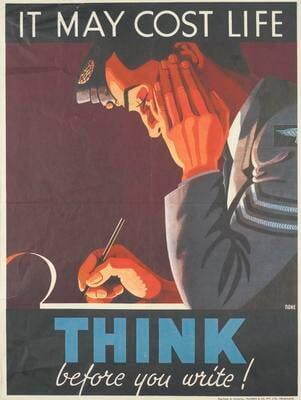
Stop Before You Start (Sept. 28, 2012)
Don’t write first. Think!
The shortest time between question and answer requires waiting, at least at first.
Let your thoughts guide your pen (or keyboard), not the other way around.
Three ways of suggesting the same thing. All in reaction once again to finding myself hectoring someone on the eve of a due date as they panicked about their work — since it was neither long enough for the assignment nor specific enough in response to the question. (And, no, it was not me … not that it couldn’t have been: it just wasn’t.)
My lecture — likely to be unheeded, again — was that rather than doing some random research and then starting to scribble, the finished product would have been easier attained if they had first figured out the specifics of what they were asked to do. Then, having noted the expectations of form and content, a preliminary outline could be sketched to serve as a guide for research and note taking. When they knew they had the answer to a question they could move on if the search no longer interested them. When each part of the outline was filled in with at least a couple ideas, it would then be time to write it all up.
The problem for most people with a written assignment is that they don’t conceive a sense of where they want to go before heading off. They pick up a pen and drift until they are stopped and at a loss. Worst of all, they don’t know how to reverse course or wend their way back into the direction they want to head without sacrificing all the work (and time) they have put in. Frustration sets in and it all takes longer than it has to and angst is spewed over the process of writing ones thoughts instead of promoting the most complimentary communication of them.
Oh, and you could also think before you write to save the planet, at least according to the ad agency shilling for a new pen.
It Gets Better With a Little Help From Your Friends (Aug 21, 2012)
Nobody should write in a vacuum. Not just metaphorically speaking: it’s dark and dusty in there and much more fun outside..
It is important to think about your audience when writing, and always helpful to get feedback. (Even if you don’t accept it, it’s a great test of your communication to learn how another will receive it.) You’ll worry something right to the cusp of publication where an editor or at another pair of ears or eyes will aid its sharpening, or even bring something new and better.
A recent example. I was noodling around with the idea of opposite words used interchangeably in some circumstances. The example that came to mind was whether and how the meaning would change to describe someone as either a “terrific” or “terrible” flirt. It was a fun idea moved to a new level thanks to the inimitable mystery writer Alan Beechey. He saw my query, “Just wondering: Would there be more happiness in being a "terrible" or "terrific" flirt?” And raised me with, “Does a terrible flirt want to make love to a woman very badly?”
I still don’t know what these words or the situation is called, but I have an even greater sensitivity to the concept thanks to a friend’s help.
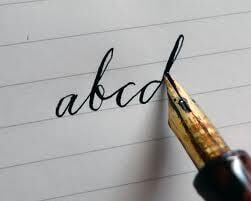
It Doesn't Take a Writer to ... [complete task for demeaning pay] (July 11, 2012)
Okay. Okay. Writing is not rocket science. You can‘t just replace that professional description with “writer“ in any sentence beginning “It doesn’t take a rocket scientist to …” and expect to be taken seriously. Still, there should be some respect paid to a professionally written, well organized presentation of ideas.
While you would think that somebody who wants to be a writer would agree, there is a great deal of evidence of that not being the case. A recent advertisement seeking quotes for help with a book proposal is just one more example. The ad displays some grammatical and formatting lapses, in addition to suggesting that English is not the author’s native tongue:
I am interested in receiving a quote for Substantive/Rewrite editing for a book proposal that includes cover letter, Back Cover, About the Author, Introduction, and first 10 pages of the book (total word count for all components: 6,954). Please note that I only require editing of the proposal at this time (an edit of the full manuscript is forthcoming). The DRAFT proposal is attached for your review. I will send the final copy to you for editing if we reach an agreement. Freelancer MUST have substantial editing experience, an English mother tongue and specialize in metaphysical/spiritual themes.
The perfect (or at least pretty good) hire for the project will be translating English into grammatically correct, reader-compelling prose; possibly doing a complete rewrite of all work done so far; and, may be using their (assumed experience with the book publishing world) to do an intervention with the author to help him/her clarify exactly what the book’s focus and execution will be in order that the proposal does the best job possible of suggesting enough book sold when completed.
All credit to the author-to-be for recognizing the need for help with his or her project. However, the least the average author can get by with for a non-fiction book proposal is 20 pages, and the posted price range for the expected quotes was from $30 to $250 (and a quick estimate of the hours involved are from 5 to more likely 30 or 40), which leads to the respect “thing.” If you accept that you need a writer to be a writer, shouldn’t you be willing to pay more than what will under most conceivable circumstances work out to about half the current minimum wage? Or would you rather get a rocket scientist to do it for you?
It was likely an unintended slight. Still, the word choice in the short note “I have read most of your articles and like them a lot” did supply a puzzle.
Was the writer’s qualifier “most of your articles” meant as a way of explaining that they hadn’t read everything I’ve written (and why should they?), or a simple statement that they only read 2/3rds or perhaps 3/5ths of any article of mine they had come across? (I have no great quibble with “liked them a lot.” Still, the "great" is somewhat grated. While the phrase has the virtue of being short, it still seems a tad lazy in its vagueness, leaving me a sense of someone trying to say something nice they don’t completely feel — but nice in intent nonetheless, to take nothing away from their heart.) Although not the kindest thought to express, the explanation of only being entertained part way through my writing might make more sense, because while they can know how much of an individual article they’ve made it through, how could they assure themselves of the quantity of articles I’ve written as a way station to judging whether they have read most of them? I don’t think that was their intent, but I am left wondering.
Admittedly, I receive too few to run down any compliment, The purpose, via context, was to say something nice — which is how I’ve taken it even as I do enjoy puzzling out what could have been meant as a way of discovering for myself anew how important it is to think through one’s intent and a reader’s response when selecting one’s words.
Questioning Faith (May 17, 2012)
Others sometime show a faith in words that truly tests one's own belief in wordpower. Such a case is now playing out within the Oakland, Calif., judicial system. Judge Yvonne Gonzalez Rogers has assigned homework to an alleged grenade launcher vendor as a condition of parole. She plans to assign him a series of books, upon which he must spend at least an hour and a half a day split two-thirds reading, one-third reporting.
Will it keep him from fleeing? Prosecutors have expressed doubts. Will it lift up the inner spirit and power of good within the accused 23-year-old Otis Mobley Jr.? Seems about as likely as a religious interpretation of butt-wagging rocker George Michael's Faith in song.
English Is Not Just What's Spoken in Parliament (March 22, 2102)
David Mitchell, Britsh kvetcher supreme, recently focused faux ire on sloppy language in general and text slang in particular. At the risk of a smile or two, the basic message is, "be specific and sensible with what you say/write." The humo(u)r should not undermine the message.
With his "A Message to Americans" from "The Queen" of "the Queen's English," he suggested great leeway in spelling and metaphor with his admonition to "use it as you like." Mitchell's point to consider arrives as he also offers limits to use only words and expressions that make sense.
Of course, since expression is not just oral but written as well, it's also worth considering what seems to solve problems and what creates them among the pantheon of text shortcut/emoticon memes.
Turns Out Some of Those Who Can't, Can (March 10, 2012)
Almost anyone can talk or type, but not everyone can write. That, however, continues not to be a disqualifier for the resume-boosting title of author. Latest evidence is Justin Bieber’s mum.
JB, author of the gold-selling title Justin Bieber: First Step 2 Forever: My Story will drop his second book, Justin Bieber: Just Getting Started
, in September. That same month mom (Pattie Mallette, if you care for her “Christian” name) and co-author ship Nowhere But Up. His book promises more of the same, hers will tell of how her struggles in life were turned around by her pregnancy with her anointed son (as well as a solid dose of religion … it is being published by the Christian-focused publisher Revell).
The point of this rant — if there is one — is that to get your book published you can either have a story people care about or an ability to tell a story that moves people. It’s literary magic if you have one AND the other, but while there is always value in writing for yourself, it’s commercial realism to take a look at what you really have and make the most you can of it.
What Kind of "ical" Am I? (March 4, 2012)
Oberlin Professor Anne Trubek screeded in a recent Wired magazine for a need to change (she would probably prefer "chanj") the spelling rules for English. Near article's end she writes, "...the distinction between the oral and written is only going to become more blurry ....Let's make our own rules."
And from that will come, no doubt, a way to assure myself and others in writing whether I am intent on being satyrical (half man, half goat) or satirical (engaging in an ironic, caustic, derisive attack and hopefully witty linguistic attack).
Little Things (February 11, 2012)
Reread your work. Read it aloud. Have someone else check it over. Details matter and relying on spell check or your reader's indifference or lack of engagement with your words is a poor strategy.
Keep in mind that a single "e" turns loath a bit darker to loathe and renders sweat into the much more tasteful sweet.
Fair warning: relying on "spellcheck" to catch everything — or just rationalizing that you're a bad speller so it doesn't matter ... or that you're just texting, tweeting or writing informally and nobody cares about a typo — won't suffice.
Fair enough: the advice is presented much more amusingly by YA novelist John Green.
Diagram This (February 6, 2012)
While you don't have to know how to build or destroy a house to appreciate one that looks good, it certainly won't hurt your appreciation. Similarly — in an overstretched metaphor sort of way — understanding sentence diagramming will aid your writing. To conceive how words in a sentence link to each other is to understand how best to modify and amplify, and which words are easily done without.
True, the science and art of diagramming sentences is far from favor in most schools. It is not, however, difficult to learn if you are so inclined.
Will it help to think of sentence diagramming as an Etch a Sketch for your inner grammarian?
Neither Begin At The End Nor End At The Beginning (February 2, 2012)
Good: you're not stupid, probably very talented, in fact.
Less good: you probably don't know what you're doing when you "write."
Good (in the misery-loving-company sense) again: almost nobody else does either as the start and finish lines of writing are mirages.
Were writing simple you would begin with the first word and end with the last. Unfortunately, the actual lines aren't drawn there. You need to think (i.e, research, outline, sketch) before you set down a word and rethink (i.e., edit, rewrite, maybe throw the whole out and begin anew) well after you wish to be done. Writing just doesn't work otherwise.
As explained better (of course) by Mark Twain in his notebooks (1902-3):
The time to begin writing an article is when you have finished it to your satisfaction. By that time you begin to clearly and logically perceive what it is that you really want to say.
[See also: Twain's rules on writing]
Ideas and Rabbits, Stupid (January 26, 2012)
What was once snake oil salesman political consultant James Carville's pithy, witty campaign motivator for Bill Clinton's 1992 presidential candidacy and campaign, "It's the economy, stupid" has morphed into a cultural meme.
In that spirit (and demonstrating something key about the power of the well-tuned phrase), every writer must remember, "It's the idea(s), stupid." Too shallow and the reader will splash mostly untouched through the puddle of your words, too deep and complicated and s/he will sink never to be seen again. While adaptable for fiction, the basics of non- are:
have an idea before writing
cut away the examples and tangents before getting ready to write
outline examples, supporting statements and perhaps even a conclusion make sure you understand what the idea means to you and consider how your audience may respond
write, rewrite, edit, read aloud, [maybe] have other eyes take a look, and edit once more before hitting "send"
Worry the idea until its well written and never fear working the one idea so hard you'll never have another. Advised john steinbeck">John Steinbeck in a 1947 interview (p. 43), "Ideas are like rabbits. You get a couple and learn how to handle them, and pretty soon you have a dozen."
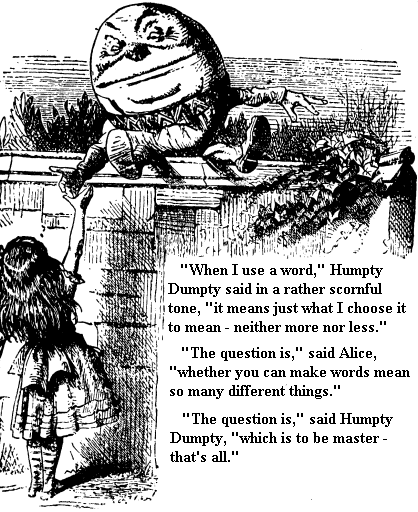
What I Choose to Mean (January 24, 2012)
Use the word whose meaning you intend. Use the word that your audience will define as you desire. Be specific: "garlic-breathed, puss-eyed, hulking, scaly death force" is preferable to "scary thing."
Want to write effectively? You can do much worse than thinking like Lewis Carroll's Humpty:
'When I use a word,' Humpty Dumpty said, in rather a scornful tone, 'it means just what I choose it to mean — neither more nor less.'
'The question is,' said Alice, 'whether you can make words mean so many different things.'
'The question is,' said Humpty Dumpty, 'which is to be master — that's all.'
Truth Is Ugly, Ugly Truth (January 22, 2012)
Poet John Keats offered a pile of munition to The Canon with his Ode on a Grecian Urn and it's finale: "Beauty is truth, truth beauty"---that is all/Ye know on earth, and all ye need to know.
All due respect: bull, horse and pig craps.
Truth can be ugly. It can be hurtful. It can be scary. For most writers getting their truth on paper will likely be all three. Truth, the hallmark of great writing, is also the great inhibitor for most writers.
Write. Write more. Write even more. Edit. Repeat and improve.
When others explain it better, accept it, praise them and move on. Once more, all hail Ira Glass for how he encourages you to W, WM, WEM, E, R&I:
Ira Glass on Storytelling from David Shiyang Liu.
Yourself or Your Audience (January 16, 2012)
"Write what you know," they insist. "Always keep your audience in mind," they encourage. "You are [probably] wasting your time if you aren't writing for yourself," they advise. "No man but a fool ever wrote for money," Dr. Samuel Johnson insisted (although there seems trouble sourcing the quote and different version float around the internet as if it is a Biblical citation variously translated from ancient Aramaic).
Can they all be good advice? All true?
Why should you pay attention to seemingly contradictory advice? Isn't just trying to write hard enough without the anonymous busybodies, them, and an alleged wise advisor butting into your process?
In practice, all the wisdom above is both true and in conflict. If you don't write for yourself, — the things you know are true and from your experience — it won't touch an audience. I can't tell you why or how readers know, but I assure you they do and will quickly flip from your page or click to another site to test another writer's truth. That said, if you only write for yourself without paying any attention to what an audience desires, to those questions it wants answered, those phrases that touch chords in its heart, that context from which it extracts meaning, then you should be absolutely positive an audience of one (not the movie of a crazed preacherman, but YOU) will be enough of a readership to satisfy your quest for impact.

Write, Right? (January 8, 2012)
Sadly, one can't honestly claim writerhood without actually writing. It probably also shouldn't be claimed unless there is payment involved, but first steps first.
February 7, 2012, (based on most educated guesses) will be the 200th anniversary of Charles Dickens' birth. The man could and did write. And he sold.
You want to be a writer? You can do worse (much worse and many do) than aspire to Dickenshood. Sit down every day and scribble or tip tap away on a story. Face don't fear the pressure of deadlines. Write for money, but from your heart and head. Nobody ever published a novel, story or article just that still only swum in their own grey matter. It doesn't count. It's not writing — and you don't get to claim you're a writer — if nobody can read it.
Adding to the Lexicon (January 7, 2012)
Are there already words/phrases to describe:
JK Rowling Syndrome: The tendency of the hyper successful author of one book to under-edit additional books of the series while also trying to make sure the reader knows EVERYTHING about characters and situations the author does. Named for the author of the Harry Potter series whose first book was a tight 320 pages or so and whose subsequent offerings grew and grew and included much more verbal flab and plotting dead zones.
Zmaps: The "share-all," seemingly automatically generated, non-personal and often annoying posting about success in a Zynga game or notice of some online petition that will have no impact. While, admittedly, one person's holy crusade online is another's pixel drivel, there is an indiscriminate and undesirable element to numerous annoying social network postings. (For example, "I've been zmapsed on Facebook with some idiot's new pig," or "That jerk was zmapsing a petition all over LinkedIn to mandate more humane treatment for left handed geese in the Andres.)
The word is built from [Facebook founder Mark] Zuckerberg last name initial and the already established email "spam" spelled backwards.
Courageous Warrior Writing (January 4, 2012)
(Re)consider every passive phrasing, every conditional verb and each qualifier before hitting "" or "." Do you believe what you write? Is it true — at least your truth? Why water it down? Although writing of a fighter, father of history Thucydides advised all writers when in The History of the Peloponnesian War, 431—413 b.c.., he "quoted" Pericles funeral oration:
The bravest are surely those who have the clearest vision of what is before them, glory and danger alike, and yet notwithstanding, go out to meet it.
Be a warrior whether with pen or keyboard. Write with courage ... and don't let the knowledge that Pericles is lauding the dead dissuade you.
Adverb Mortification (January 2, 2012)
Verily, there are those who say, "kill all adverbs." While most "ly words" are best erased or backspaced — particularly when writing to a word count — it is useful to consider both context and moderation, although that may not be what is best learned from a great writer such as Mark Twain.
I am dead to adverbs; they cannot excite me. To misplace an adverb is a thing which I am able to do with frozen indifference; it can never give me a pang. ... There are subtleties which I cannot master at all,--the confuse me, they mean absolutely nothing to me,--and this adverb plague is one of them. ... Yes, there are things which we cannot learn, and there is no use in fretting about it. I cannot learn adverbs; and what is more I won't. - "Reply to a Boston Girl," Atlantic Monthly, June 1880

Fear (January 1, 2012)
Most first time and many longtime writers have nothing to fear but fear itself. It is fear — of failure; of not getting paid or appreciated; of revealing too much about him or herself; of critics yammering about what hasn't even been written; of all and nothing — while his or her fingers poise over the keyboard or pamper a pen that inhibits the person who wants to be a writer but doesn't necessarily want to do the work of writing.
Overcome fear and the writing gets easier, never really easy if done well.

So It Goes With Vonnegut (December 31, 2011)
He might not have been right in all circumstances, but it doesn't make it any less wonderful to think about and read:
"Here is a lesson in creative writing. First rule: Do not use semicolons. They are transvestite hermaphrodites representing absolutely nothing. All they do is show you've been to college."
Kurt Vonnegut, A Man without a Country

